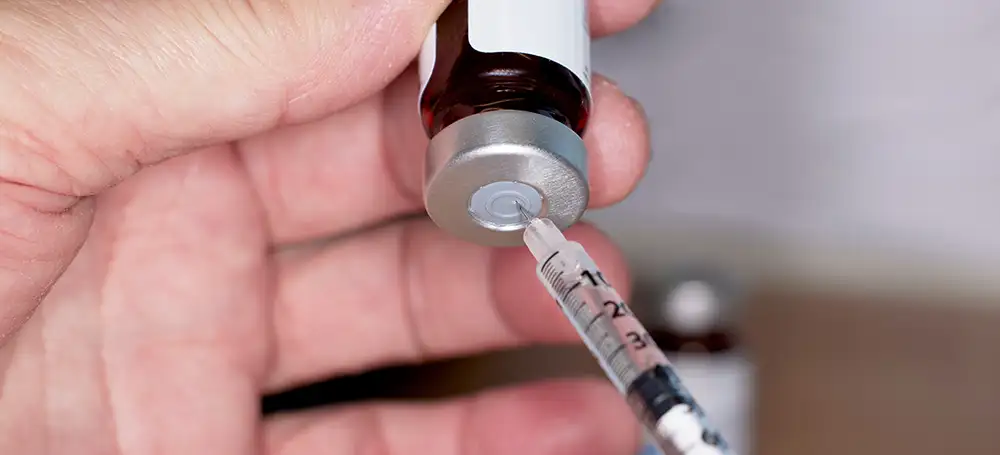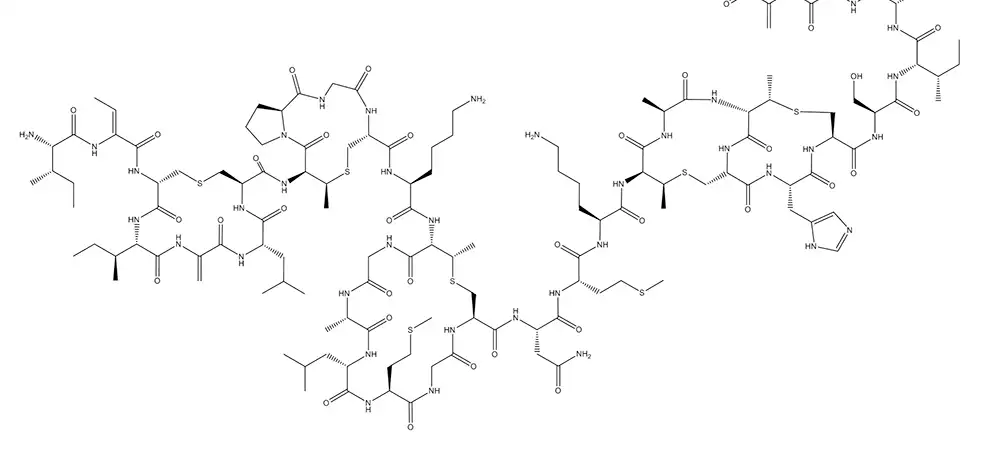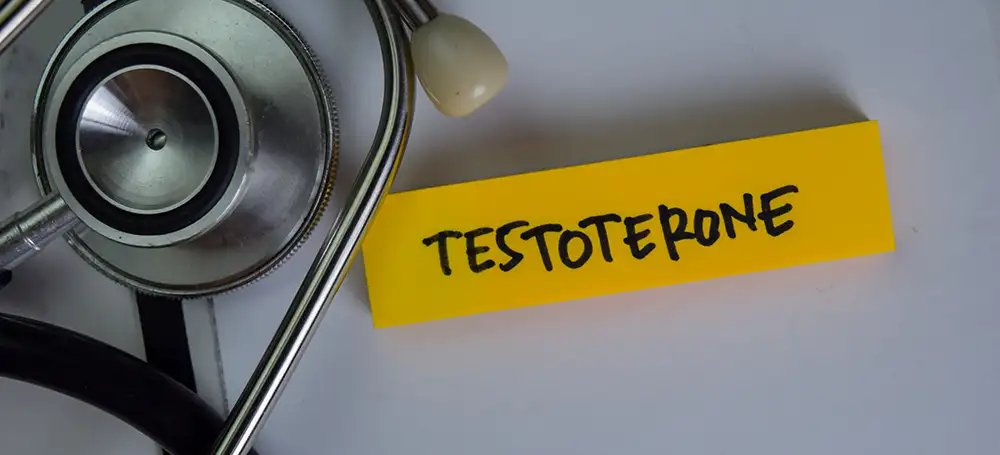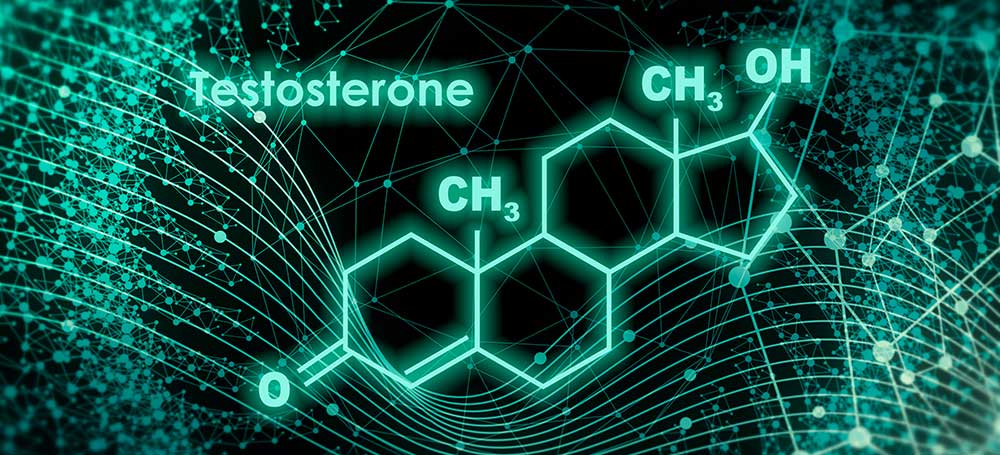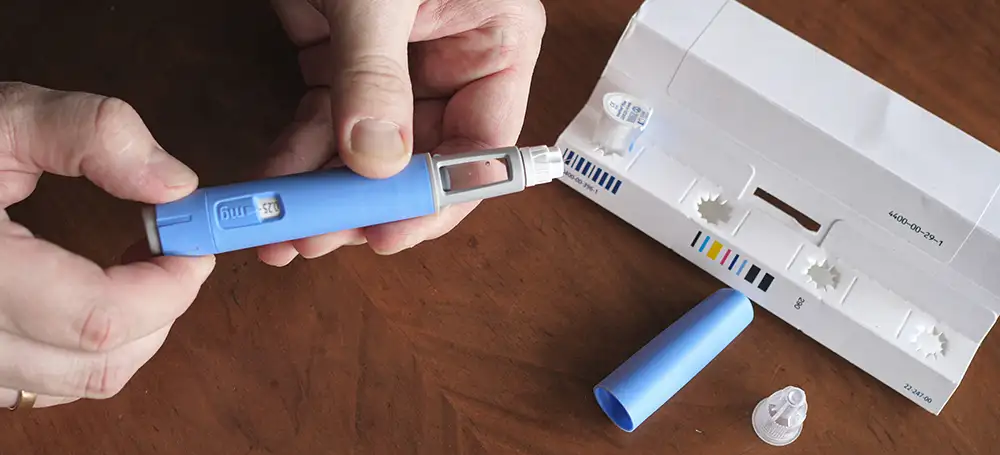Get that Spring Back in your Step with Testosterone Replacement Therapy
TRT is Helping Men Live Fuller Lives after 40
Is the spring in your step getting a little creaky? Is the gleam in your eye starting to fade? If so, then Testosterone Replacement Therapy might be right for you.
We live longer and do things in our older age that were considered unheard of in our parents’ and grandparents’ generations. Advances in healthcare and the way people take care of themselves have improved dramatically over the past 25 years. One thing that is helping to keep people feeling and acting younger is Testosterone Replacement Therapy.
Testosterone Decreases Naturally as You Get Older
Testosterone is considered one of the most important hormones in the male body. It is responsible for driving the development and growth of muscle and reducing fat. It helps increase energy, improve your mental functions, and drives both sexual desire and sexual performance. From the time a man reaches puberty through his 20’s, the production of Testosterone in the body can increase up to 30 times! Remember how good you felt back then? Where did all that energy and drive go?
Well, one of the answers is that the rush of Testosterone you get during your adolescence starts to steadily decrease once you hit about 30 years old – at a rate of about 1-2 percent a year. Now that may not sound like much, but by the time you’re 45, your body could be producing a third less Testosterone than it did at its peak. This didn’t matter much 100 years ago when the average life expectancy was in the mid 50’s. But today’s man is living well into his late 70s.
Living Longer and Living Better
But the story doesn’t end in just living longer. Today’s man has the opportunity to do more, see more, and experience more in the second half of their life than they did in the first half. Low Testosterone or “Low-T” can rob you of the drive, energy, and well-being you want to take advantage of. It can help you experience all the opportunities life and your hard work has to offer. TRT can help reverse these symptoms of aging and can help you improve your quality of life in so many ways.
Whether you want to drive your motorcycle across the country, sign up for a new dating app, or you simply want to be able to keep up with your kids and grandkids, you’re going to want to look and feel your best. Testosterone Replacement Therapy can help to:
Improve Your Appearance
If the image of a disheveled grandfather sinking into the couch with the remote control in one hand and the crossword puzzles book in the other isn’t what you had in mind for your 50’s and 60’s, then TRT may be right for you.
Reduced Testosterone can lead to weight gain, increased body fat and smaller muscles.. Increasing your T-level with TRT can help to slow down – and in some cases reverse – these trends, to help you to look your best.
Improve Your Workout
Whether you exercise to improve your appearance or just to improve your overall health (or both), raising your testosterone levels can help improve your workout. The most obvious way is that Testosterone helps you to build muscle mass. TRT can also help you to recover quicker, allowing you to train harder and longer than you might otherwise. Testosterone promotes a faster metabolism, which also helps to reduce fat and burn calories.
Improve Your Love Life
Testosterone is a male sex hormone, and it controls everything from your libido to your performance. Approximately 40 percent of men with erectile dysfunction are found to have Low-T. A recent study in the Journal of Clinical Endocrinology and Metabolism found that “men who started testosterone therapy improved their scores for erectile function, sexual health, and overall quality of life.
Participants on TRT improved on 10 out of 12 different measures of sexual interest, including:
- Sexual daydreams
- Anticipation of sex
- Sexual interactions with their partners
- Orgasms
- Ejaculation
- Intercourse
- Masturbation
- Spontaneous erections during the night
- Erections in response to sexual activity
Improve Your Energy
Lack of energy as we get older is a real thing. But you can’t go out and take on the world if you can’t get out of your chair.
Testosterone is a key hormone in the production of red blood cells, a process known as erythropoiesis. Low-T can lead to a lower production of red blood cells, causing fatigue and significantly impacting our energy levels. TRT helps to boost erythropoiesis and get your red blood cells back to the level they should be at.
Low-T has also been linked to quantity and quality of sleep. Raising your T-Levels with Testosterone Replacement Therapy can help reverse these symptoms and give you the restorative sleep that your body needs to fire on all cylinders.
Improve Your Health
Clinical studies have linked several significant health problems with a decline in T-Levels, including:
- Osteoporosis
- Alzheimer’s
- Frailty and Obesity
- High Blood Pressure
- Diabetes
- Prostate Cancer
- Cardiac Failure, and
- Heart Disease
Men with Low-T can look to testosterone replacement therapy to help reduce the risks of these and other related health problems.
Improve Your Mental Functions
Testosterone has been linked to mental clarity and acuity. Two separate studies show beneficial effects from testosterone treatment on spatial and verbal memory and cognitive assessments (including visual-spatial memory).
Raising your T-level can help improve focus, cognitive skills, alertness, and awareness. This can pay dividends both on the job and in your everyday life.
Improve Your Outlook
If looking better, feeling better, and improving your love life isn’t enough to get you in a better mood, men who increase their T-levels with TRT tend to notice an improvement in their state of mind. Low-T and some of its symptoms can cause depression, irritability, anxiety, and mood swings. Testosterone is a neuroactive steroid that can influence mood, and in animal testing has been shown to increase serotine levels.
Another study in the JAMA Psychiatry found that “Testosterone treatment appears to be effective and efficacious in reducing depressive symptoms in men, particularly when higher-dosage regimens were applied in carefully selected samples.”
Finding The Right TRT Provider
As TRT and other anti-aging treatments become more commonplace, there is no shortage of people willing to sell you something they claim will help you look and feel better. But it is important to find a provider who is licensed and experienced to make sure that your program is customized to meet your specific needs. When it comes to hormone therapy, one size does not fit all.
Dr. Zachareas (Dr. Z to his patients) is a board-certified urologist and highly-respected expert in the field of men’s health. He and the Boston Vitality team have helped hundreds of men live fuller and more invigorated lives through hormone treatment. They offer several anti-aging, wellness, and sexual health treatments, including the latest in HGH peptide treatments, and can find the right treatment regimen to suit your needs.
They take the time to understand you, your lifestyle, and your needs and goals – not just your symptoms. They take the time to review your medical history, perform a physical exam, and run extensive blood work to determine your hormone levels. They do all this to customize the proper treatment regimen to fit your lifestyle and get your body balanced and feeling your best.
Finding Low T Treatment in Massachusetts
If you would like to learn about how Testosterone Replacement Therapy can help improve your physical, mental, and sexual health, please call our office at 781-399-LowT (5698) to schedule a consultation.




